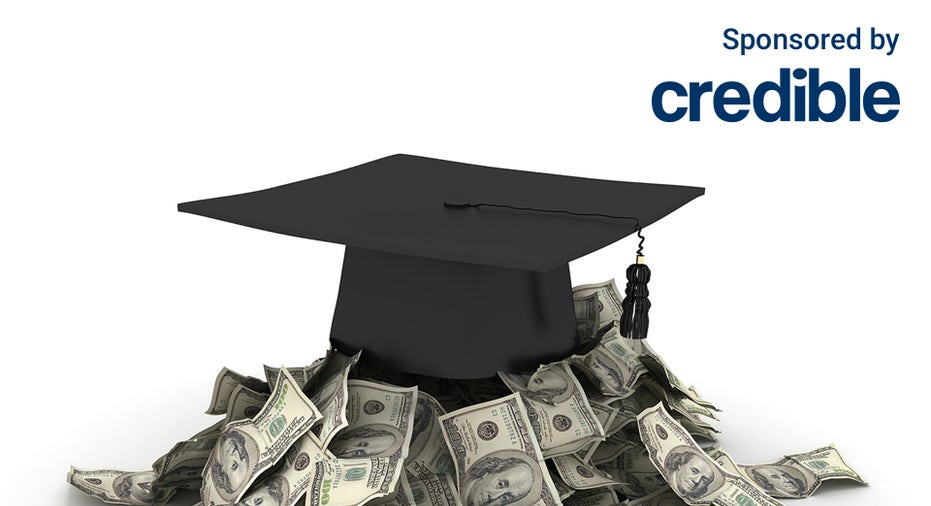Most Americans support Biden's student loan forgiveness plan, survey says
Borrowers would still face $400 in monthly payments even if forgiveness plan is passed, expert says

Among the survey respondents leaning right politically, 50% supported Biden's plan to forgive student loan debt. (iStock)
As borrowers await a court decision on the fate of President Joe Biden's student loan forgiveness, a new survey said that most Americans support the plan.
In total, 62% said they support student loan forgiveness and 18% said they opposed the plan, according to a recent Newsweek survey. Along political lines, 80% of Americans who voted for Biden in the 2020 presidential elections supported the plan, while 50% of Americans who voted for Trump favored the plan.
The plan would cancel up to $10,000 in federal loans per borrower and up to $20,000 per borrower for those who used Pell Grants in college.
However, forgiveness on about $441 billion in outstanding student debt has been hamstrung by lawsuits arguing that the plan is unlawful. The U.S. Supreme Court heard those cases in February and the Biden administration's oral argument. A final ruling is expected to be made public sometime in May or June, according to several market reports.
If Biden's student loan relief plan goes into effect, private student loans won't qualify for any of its benefits. If you hold private student loans, you could consider refinancing these to a better interest rate to lower your monthly payments. You can visit Credible to compare options from different lenders and choose the one with the best rate for you.
HIGHER WAGES AND SOCIAL SECURITY CHECKS LED TO INCREASE IN CONSUMER SPENDING: BOFA
Most respondents believe that college is important
Most Americans (68%) said that a college degree means more success and higher wages and 55% said a college education lays the foundation for a successful career. In comparison, 35% said it primarily offers useful skills, according to the survey.
Those findings come amid a national decline in undergraduate enrollment. In the last decade, student enrollment dropped by about 1.9 million students, or by almost 10%, according to a BestColleges report. Undergraduate college enrollment dropped nearly 8% between fall 2019 and fall 2022.
Part of the reason why fewer people are attending college is because of rising costs. More than 6 in 10 Americans in a separate BestColleges survey said that the financial burden of earning a degree made college inaccessible.
"Since the pandemic, the college enrollment decline has accelerated," BestCollege said. "The pandemic's economic impact forced some to reconsider their plans to attend college, especially those with lower incomes."
If you have private student loans, refinancing at a lower interest rate could help you reduce your monthly payments and repay your loans faster. Credible can help you find your personalized interest rate without affecting your credit score.
401(K) HARDSHIP WITHDRAWALS RISE AS INCREASED COST OF LIVING CHALLENGES RETIREMENT SAVINGS: REPORT
Borrowers could still owe $400 a month in student loan payments, expert says
If the administration can follow through on its student debt forgiveness plan, payments will resume 60 days after permission is granted. If the program is not implemented, payments will resume 60 days after the June 30 deadline.
Student loan borrowers owe, on average, around $38,000, so most would still have loans to pay even if the forgiveness plan goes through, said Michael MacLaverty, the co-founder and CEO of Highway Benefits, a startup helping companies offer student loan repayment as a benefit to employees.
"Borrowers need to prepare to start paying an average of around $400 a month, a significant amount that 89% of borrowers say they are not ready for," MacLaverty said.
One option borrowers could use is to seek employment with companies that offer student loan repayment as a benefit, which was made tax-free in 2020, according to MacLaverty. Companies can contribute $5,250 per employee per year to pay off employees' student loans.
Biden also signed the Secure 2.0 Act into law earlier this year, which includes a provision that allows employers to provide their employees with 401(k) contribution matches based on their workers' student loan payments.
If you're having trouble making your private student loan payments, you could consider refinancing to a lower interest rate. You can visit Credible to speak with a student loan expert and get your questions answered.
INFLATION, RECESSION FEARS DAMPEN FINANCIAL HEALTH OUTLOOK FOR MANY: SURVEY
Have a finance-related question, but don't know who to ask? Email The Credible Money Expert at moneyexpert@credible.com and your question might be answered by Credible in our Money Expert column.




















